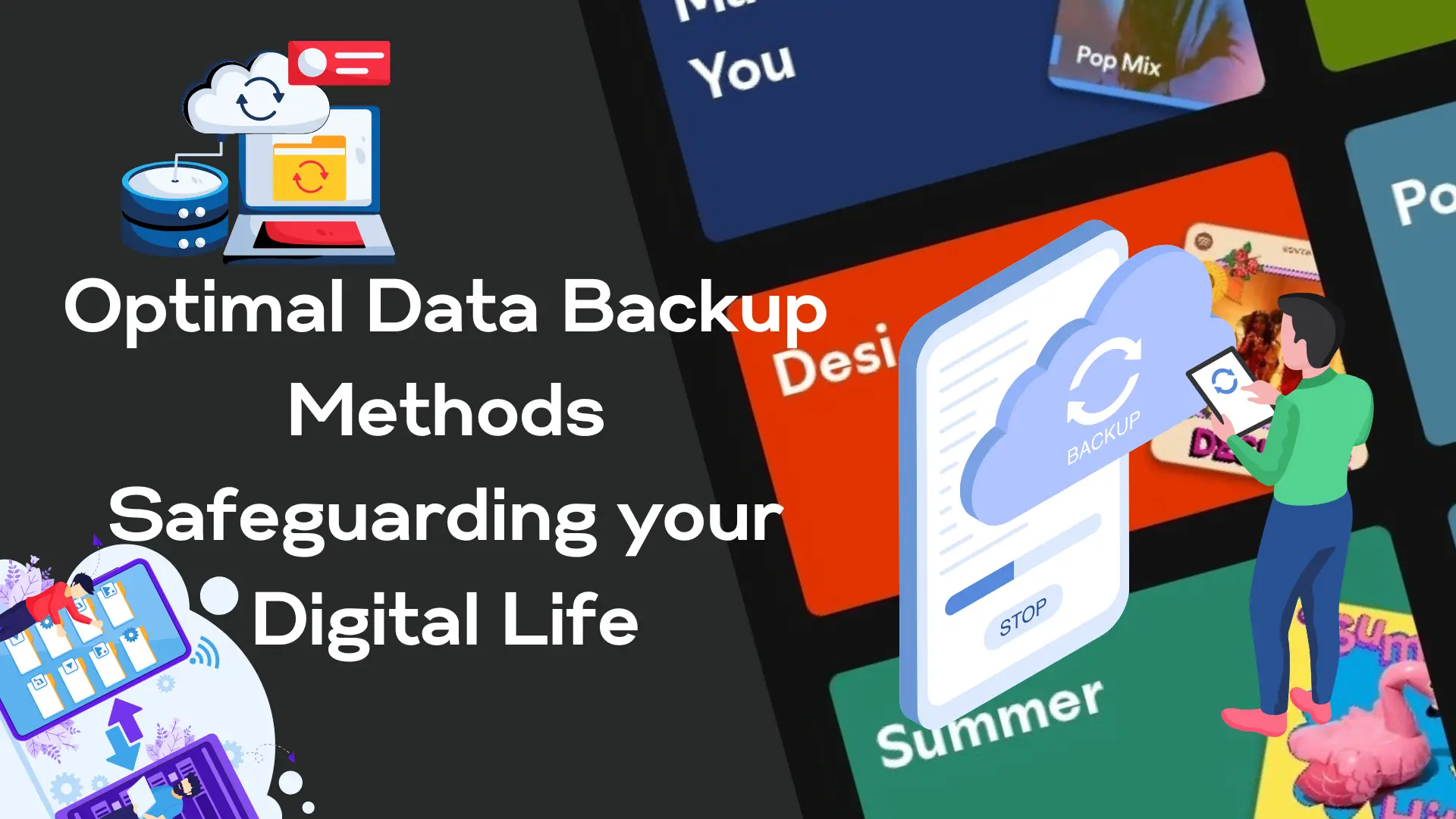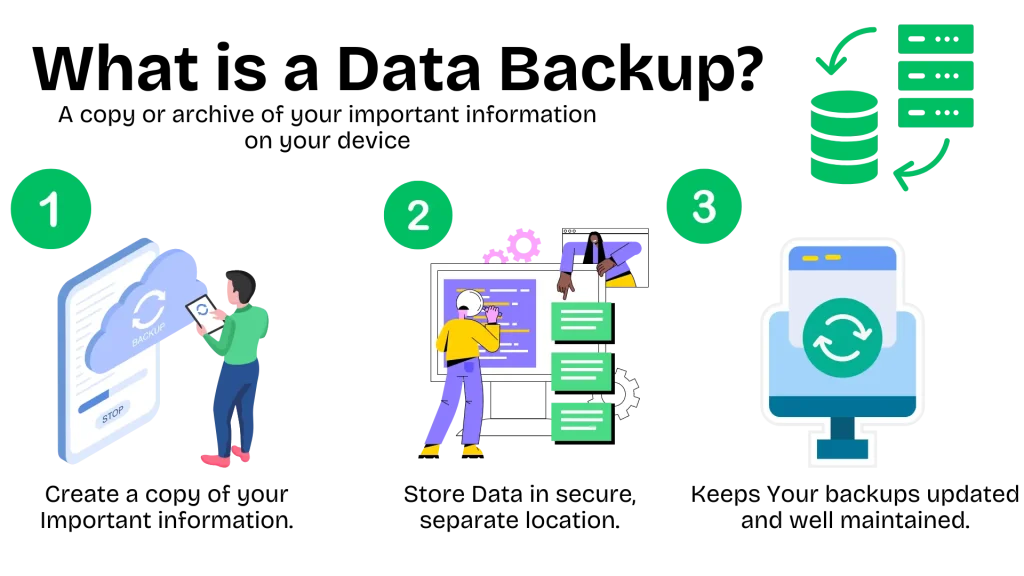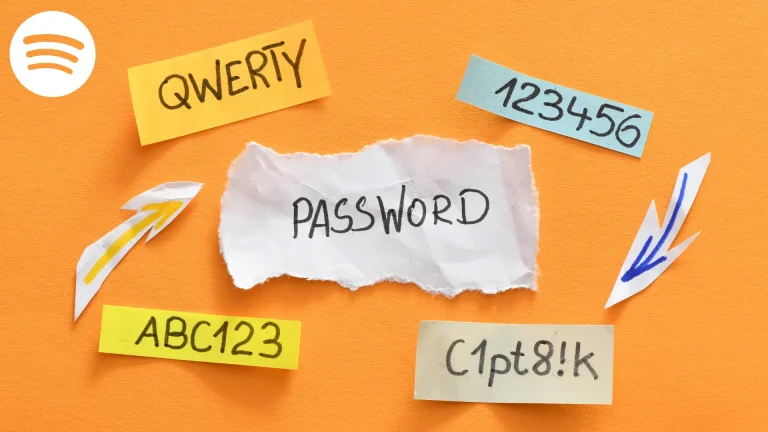Optimal Data Backup Methods | Safeguarding your Digital Life

It’s hard to imagine losing your digital data, whether your memories or other sensitive files. We live in the tech era where every piece of information related to your personal life (photos and videos), business, or finances is stored digitally without the security of being securely backed up. In this article, we are going to discuss about various data backup methods, including local storage (such as external hard drives or USBs), cloud storage (like Google Drive or Dropbox), and hybrid solutions (a combination of both), to equip you with the knowledge to protect your data and stay vigilant against potential security breaches.

As our world becomes increasingly digital, the potential devastation of data loss looms larger. Spotify Premium Mod APK Data or playlists saved in your devices. Whether it’s our data in clicks, videos, or critical documents, most of our valuable data resides on our computers and mobile devices. But what if disaster strikes? A device (Android or iOS) crash, a vicious malware attack, or even a theft can wipe out our data, leaving us in a state of profound loss and devastation.
You’re taking a crucial step by prioritizing the security of your digital life. Effective data backup strategies act as a safety net, ensuring your data is always accessible and secure, even in unexpected events.
This blog post empowers you with the knowledge to explore various data backup strategies, from local storage to the convenience of cloud storage. We’ll also explore the tools to help you establish comprehensive data backup solutions, fortifying your digital world against cybersecurity threats and hardware failure. Don’t leave your precious data vulnerable. Take proactive steps to protect it with these essential strategies.
What’s the Significance of Data Backup?
The increasingly expanding digital realm is filled with priceless personal memories and vital professional documents, and the importance of our data grows daily. This encompasses cherished moments captured in photos and videos, essential password databases, legal contracts, and ongoing projects.
Now, picture the sudden loss of access to all this data. The impact can be profound, whether due to a virus attack or hardware failure. In fact, the United States alone lost $12 billion due to hardware failure, which causes an annual monthly loss. Due to inadequate data backup practices, 38% of respondents reported losing access to crucial files, as shown in a recent ExpressVPN survey across the US, Germany, the UK, and France.
Although we all face the risk of data loss, the reassuring truth is that it’s preventable. Data Backup is an insurance policy for your digital life, as the proverb says (pre-say prevention is better than cure).
Pros & Cons
Let’s look at the pros and cons of data backup, as many aspects are overlooked, and how they can comfort us.
| Pros | Cons |
|---|---|
| Protection against data loss | Initial setup may require time and effort |
| Safeguarding important information | Cost associated with storage solutions |
| Peace of mind | Regular maintenance and monitoring required to ensure backups are up to date and functioning |
| Easy restoration of data | Risk of data breaches if not properly secured |
| Redundancy for added security | Dependency on external service providers for cloud backups |
- Climaty and Mishap: From hardware failure to natural disasters or theft, unpredicted events can occur anytime.
- Efficiently increasing security threats: Malfunction or crypto ware attacks (a type of malware that encrypts your data and demands a ransom for its release) can encrypt or corrupt your data, requiring a massive piece of pie for decryption, often without guaranteeing access even after payment.
- Human Unconscious Errors: We have all made the mistake of unconsciously deleting documents with a single click countless times.
- Savings of time and costs: It’s known that data recovery is a long process and expensive, too, without ensuring complete recovery, even if some professionals do it.
- Comfort of Nerves: Your Nerves soothe when data backup is securely done. It ensures peace of mind rather than the aggression of losing your priceless memories, super essential document files, and hard-earned time.
Understanding the actual value of timely data backups. Let’s look at the next section, where we will explore safe data backup strategies.
Best Data Backup Strategies
This section is dedicated to the crucial task of storing and creating data backups. Our focus is not just on the best strategies, but also on the paramount importance of data protection and security, a concern that is likely top of mind for you.
There are hundreds of data backup and storage solutions, but they depend on budget, availability, and requirements. Each solution has its pros and cons. A few of them are discussed below.
NAS(Network Attached Storage)
A NAS device is like a special storage box that connects to your home network. It’s handy because it gives you one spot to save and handle backups for all your gadgets. While adding more space if needed is easy, it can be pricey. Setting it up and running smoothly requires technical skills, especially networking. Most importantly, please keep it safe from natural disasters and power surges.
Multi-Cloud Backup Storage
For those who rely on cloud storage backups, consider the reliability of multiple multi-cloud backup storage platforms. This strategy ensures that your backup data is saved on numerous servers worldwide, guaranteeing 24/7 access. Even if one provider experiences issues like a down server or outage, your data remains secure and accessible.
Hybrid solutions
Take control of your data backups with hybrid solutions. This strategy combines the speed and accessibility of local backups with the security and flexibility of cloud storage. If your local server encounters issues, your backed-up data remains securely available on another cloud storage server. This versatility empowers you to manage your data backups effectively.
Local Storage
Let’s introduce another famous way to store your data backups rather than your devices. In this way, you need a hard drive or a USB device, depending on what you can afford or what suits you best. They are easy to track but risky in case of damage and theft. So, please keep them in a safe place, such as a locker.
Cloud Storage
The convenience of cloud storage cannot be overstated. With options like Backblaze, OneDrive, Dropbox, and Google Drive, you can rest assured that your data is secure and accessible. These providers offer automated backup and security features like two-factor authentication and encryption. Choose a trusted provider with robust security measures and ample storage capacity to ensure the safety of your data.
How to Setup and Create Backups?
Multiple ways can be used to set and create data backups with super secure strategies to ensure your entire system is optimized for your needs. Let’s go through some of the options.
Granular Backup: This efficient backup system, also known as selective backup, is designed to optimize storage space and expedite data backup. It recognizes that not all data requires constant backup, allowing you to prioritize critical data. This ensures that your important data is always available when needed, without wasting storage space on less critical data.
Our intuitive system empowers: you to take control of your data. You can effortlessly set a backup schedule based on the frequency of data changes, whether it’s every hour, day, month, or year. The system handles the rest, automatically backing up your data and ensuring its security, freeing you from this task.
The 3-2-1 Rule, adaptable to your needs: This robust data backup system is a testament to its high-quality security strategy. With three copies of your data stored, two on different local storage and one offsite, your data is shielded from mishaps like accidental deletion, natural disasters, and device malfunctions. The best part? You have complete control over customizing this setup to suit your needs, providing a reassuring level of flexibility.
Tips to Secure Your Backup
Securing your data is not just important; it’s crucial. It’s your responsibility to ensure that unauthorized people cannot access it. Encryption is the key to this, as it jumbles up your data, making it unreadable unless you have the decryption key. This is a serious matter that requires your attention.
Here, we will explore the essential tips for ensuring the security and safe storage of your backed-up data, regardless of where to store it and how to use it.
Secured and Strong Password: It is of utmost importance to use a strong password for the security of your data. We strongly recommend using a mix of numerals, symbols, and upper and lower case letters. Never reuse passwords across different accounts. It’s like using the one key to open multiple tasks. In this way, the security of your backup will be compromised.
Encrypt Your Backup: Encryption adds an extra layer of security to your data backup, preferably for sensitive information. It’s like a safe with a single key that is authorized for the honor. 256-bit AES is the most vital recommended encryption method.
Prefer a Safe storage method: Against any natural or physical disaster, always ensure the security of your data while storing it locally. Keep it in a locked cabinet or a fireproof safe.
Trustworthy cloud storage provider: While storing your data on the cloud, ensure the provider has solid security measures. These measures should include encryption of data at rest and in transit, two-factor authentication for user access, and regular security checkups to identify and address any potential vulnerabilities.
Multifactor Authentication: MFA is a game changer for security. It requires more than a password to get into your data-usually, you will need a code from your phone or something similar. It’s like having a secret handshake before you are allowed in.
Use Checksums: These handy little things are like fingerprints for your data. They help you ensure that nothing is being corrupted or tampered with during the backup process.
Keep an eye on your Backups: Set up alerts or notifications for any backup hiccups or failures. That way, you can fix any issue before it turns into a big problem.
Check your Backups Regularly: Ensure the backup system is working properly regularly. Try restoring a bit of data from your backup to ensure everything is running smoothly.
Conclusion
Being more cautious about the security of your digital life through well-optimized ways of data backup is the step in achieving the comfort of mind. Whatever method you follow either NAS storage or a combination of two ways prioritizing encryption and other security methods ensuring the security and protection of your precious data that would be irreplaceable from cyber attack.
The above-mentioned helpful tips and guides play an important role as proactive steps to secure your worthy data. The risk of losing data to natural disasters, mishaps, or any threat of cyberattacks will be lessened by taking all these security measures. Follow the tips and guidelines given in this article from today and your data will be protected for the term.





